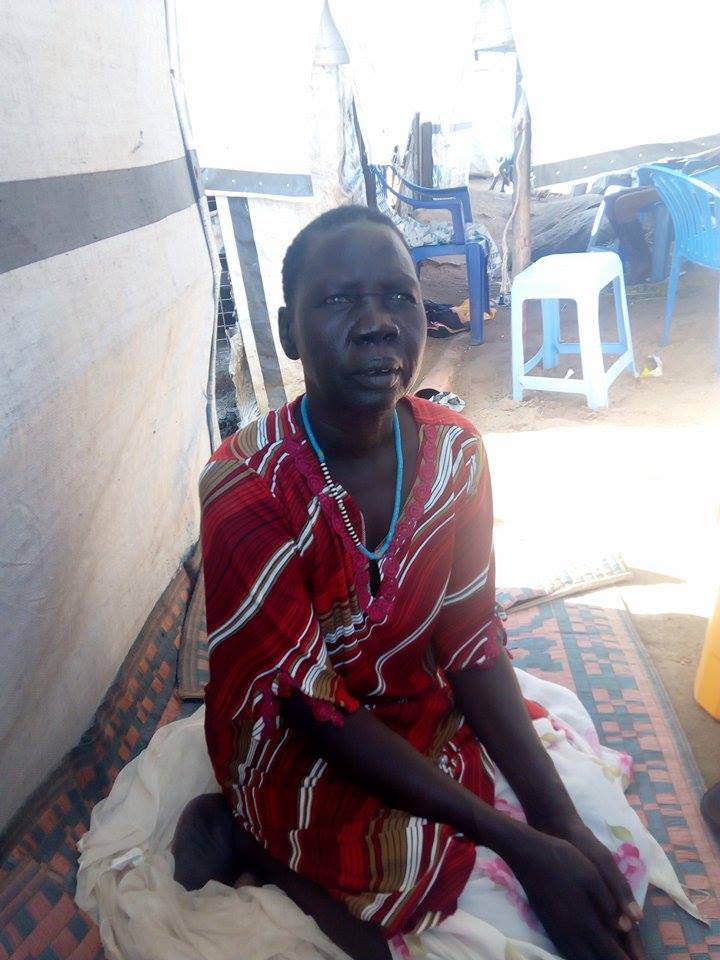
I live with my grandson in a camp in Juba for internally displaced people. This is my first time living in such a camp. Even during the decades of war with the Government in Khartoum we used to escape the conflict and later return to our villages. But with the current conflict, that is not possible.
I live in a tent shelter. The hygiene is poor. It is very hot during the day and very cold at night, and I do not have suitable clothes. Life is difficult, and we feel cut off from the others outside the camp. The management restricts our movement and I find myself doing nothing most of the day. We depend on humanitarian aid. Before displacement, I was earning a living.
How did you get involved in campaigning for older people’s rights?
As a result of the work of the South Sudan Older People’s Organisation (SSOPO) and HelpAge International, I started working with an older people’s group in the camp. I learned about my rights and how to demand them.
I am inspired by the staff of SSOPO who talk passionately about our rights. They have empowered and motivated me to speak out. I have embraced the courage to talk about my rights despite the very difficult environment I find myself in as an older woman.
What are you campaigning for right now, and how are you doing it?
Women are not considered equal within our societies, but we have the determination to have this changed. I have adopted an intergenerational approach in that our group has started to engage with young women on issues such as older people’s rights and how to create better understanding between mothers and daughters in-law.
The communities in camp are responding to the calls, especially on gender issues. One example of our success is that the current traditional high court in the camp is now led by a woman.
What needs to be done to improve the situation further?
I hear talk about equal access to services and human rights, but I am yet to see this translated into real support. I am yet to see my basic needs such as food, healthcare and clothing directly addressed.
We are not always consulted during needs assessments, and even when we are consulted, what we ask for is not always provided. Our participation in decision-making processes here in the camp is minimal. We feel we are being discriminated against because of our age.
Older people still face problems at water points and food distribution sites. It is even worse for women. I now have an eye condition and cannot see well, this combined with the negative attitudes I face as an older women is too much.
Do you have a message for other older people around the world?
Let us break the silence and begin to actively talk about abuse and discrimination against us, including by family members. We must continue to seize any opportunity to take part in the affairs of our societies.
I aspire to live in the society where I am valued and accepted, recognised for my contribution and respected.
With thanks to HelpAge global network member ZDUS.
Read more stories from older campaigners.
